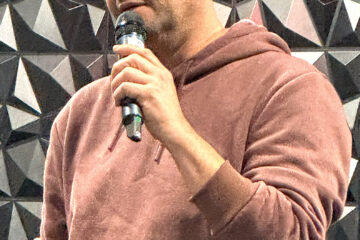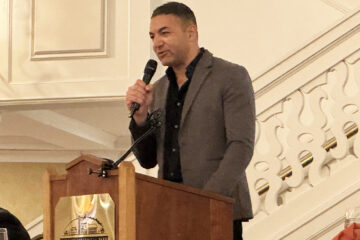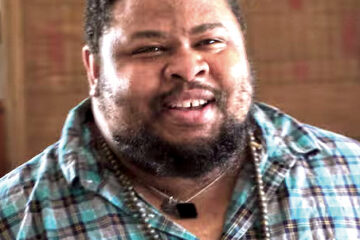A gift for Father’s Day

By Rabbi Haviva Horvitz, Temple Beth Sholom, Middletown
“Avinu Malkeinu, Our Father, Our King” . . . OK, it’s not Yom Kippur yet, and although a rabbi may begin to prepare sermons for the High Holy Days early, that’s not my focus here. But rather, I would like to highlight the fact that we rarely refer to the Lord, Our God, as our mother. As a matter of fact, we don’t.
There are a number of references in Jewish literature that do use what we might consider “motherly terms” when describing some of God’s actions in a vocabulary we can understand, but that is as close as we get.
For example, in the book of Isaiah, Chapter 66, Verse 13, it says: “Like a man whose mother consoles him, so will I console you, and in Jerusalem, you shall be consoled.”
There is no question that we are taken under God’s wings, as it were, and we are cared for, comforted and fed, as a mother would tend to her young. But fathers are capable of doing all that as well.
We do reach out to God’s more feminine side when we are asking for healing, but, for the most part, God is “Our Father, Our King.”
So what gift should we get for God for Father’s Day?

The history of Father’s Day is a bit confusing. There are a number of different people who have tried to claim credit for starting the idea of honoring our fathers with a special day dedicated to celebrating fatherhood, paternal bonds, and the influence of fathers in society.
Some were concerned that it was becoming too commercialized and therefore was not being observed for the right reasons. However, finally, in 1972, approximately 58 years after President Woodrow Wilson made Mother’s Day official, the day honoring fathers became a nationwide holiday in the United States.
It is hard for me to conceive of a time before Father’s Day, even though it is truly a relatively new holiday.
When we are taught the Ten Commandments, we discover that we are instructed to honor each our father and our mother. If every word in the Torah was carefully chosen, and something is to be learned by these word choices, then why separate mother and father; why not simply charge us to “honor your parents?”
I remember learning as a young child that the preposition in the Hebrew separating the words father and mother is not necessary and is intended to represent the teachers who are also supposed to be honored. However, I also remember feeling that it was probably a teacher who started that interpretation.
Now, as an adult, and a mother, I believe that even though parents work together with the same goal in mind, they each have their own distinct, personal methods and touches, which need to be honored and respected, individually.
Similarly, there is a tradition that the first five commandments are between people and God, while the second five are between people.
If that is so, then why is honoring your father and mother included in the first half? It seems obvious that our relationship with our parents, united or individually, is between people.
Although the answer is more complex, since there may be times when it is not easy to honor one’s parents, and some parents may not so obviously deserve such honor, we are to honor them for God’s sake.
Personally, I was a very fortunate child, although I may not have appreciated it as much as I do now, as a parent with my own children. There was never a doubt that my parents loved me, loved my brothers, and loved each other.
They each made every effort to be a consistent part of my life, celebrating birthdays, graduations, and even just ordinary days when I needed them to be there for me.
I continue to call my parents often, just to say hello, to hear their voices, to hold on to what I know is only temporary. I appreciate every moment, every visit I can sneak into my busy schedule, every text and email, every Facebook post.
By being the best me that I can be, helping and caring for others, taking the time to be there for my children, this is the best way to honor my mother and my father.
Perhaps, honoring my parents is the best Father’s Day gift that I am able to give to God. It was the fifth item on his wish list.
To read the complete June 2018 Dayton Jewish Observer, click here.





